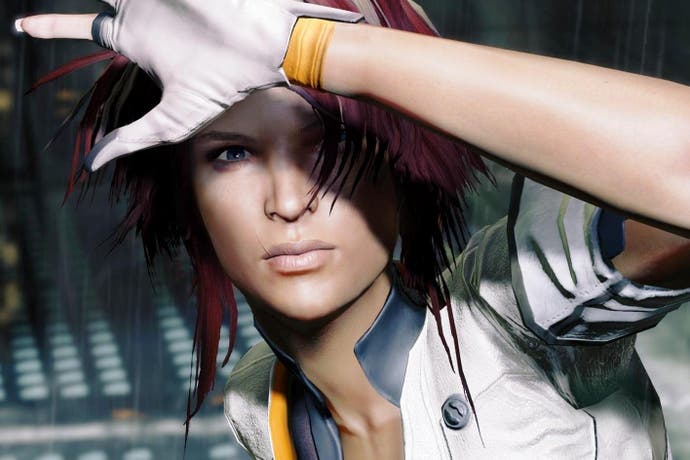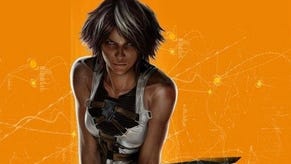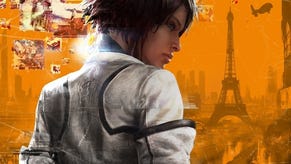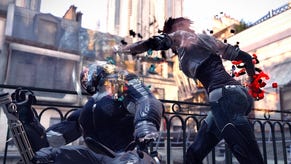Remember Me review
Uncharted territory.
Everyone has been through events in their life that they would prefer to forget. But what if you actually could forget them? Or give them to someone else? Or even change your recollection of what happened so that you no longer had to live with the pain, guilt or bitterness that you were left with as a result?
In Remember Me, the first game from French studio Dontnod, scientists have made that breakthrough. It's the late 21st century and the citizens of Neo-Paris - a futuristic metropolis built following a European war - are all equipped with Sensens, devices that allow people to import, export and modify their memories. Those within a bubble of privilege at the centre of the city live in blissful ignorance of their past misdemeanours, waited on by silent robot drones and guarded by electric barricades.
All is not well, however, as players discover when they take control of Nilin, a young woman who is about to have what's left of her memory wiped as punishment for some unnamed crime. With help from a mysterious accomplice named Edge, Nilin escapes into the slums below Neo-Paris, where she experiences the other side of Sensen society.
Over an engaging first few hours, Nilin rediscovers her former life as a memory hunter - a revolutionary fighter who hacks people's thoughts to disrupt the efforts of Sensen's creator, the Memorise Corporation. With Edge's help, she tries to retake Neo-Paris from the 21st-century bourgeoisie, who are now dependent on technology to assuage their guilt about the deprivation and squalor lurking below them.
Nilin climbs and fights her way through the slums of Neo-Paris in a manner that has much in common with an Uncharted game or Ninja Theory's Enslaved. Sure-footed and occasionally spectacular traversal gives her eye-catching glimpses of the city above, which the camera draws back to savour, and there are puzzles to solve along the way - even a few basic riddles - as well as hovering security bots to scuttle past as you break and enter.
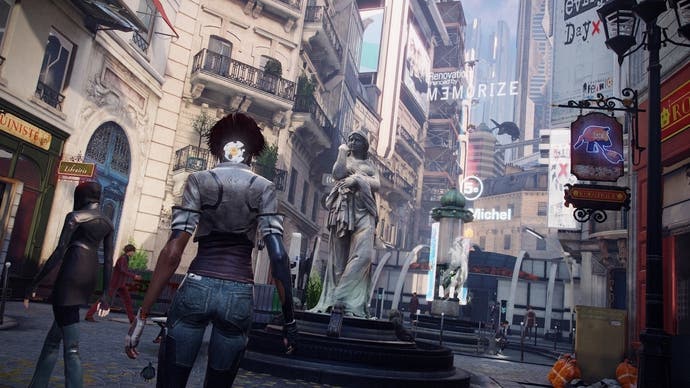
Conflict is often unavoidable, however, and when the time comes the game will box Nilin into small arenas to fight lolloping adversaries called Leapers - crazed citizens who have overdosed on memories and been left to scratch around in the slums - or increasingly nasty members of the security forces.
You're pretty much always whacking enemies or crouching behind walls and shooting them in a game like this, so Dontnod deserves credit for a system that feels refreshing while opting for the former. It's similar to the Batman Arkham games in that you hit the next button as the last blow lands in order to maintain a combo, but the ability to design your own combinations using unlockable moves gives it a different feel.
Once you stop button-mashing and get into the rhythm, you find yourself tweaking combos more frequently to suit the emergence of new enemy types - like an electrically-charged enforcer who damages you when you hit him. Fighting game experts will find it lacks depth next to Metal Gear Rising or Anarchy Reigns - the lack of a block or parry means it feels evasive rather than powerful - but by the end of the game you have to be dancing around managing space, prioritising targets and laying down the right combos and special moves with a fair amount of skill.
It can be satisfying, but after a while it's more of a rhythm game than a spectacle. Your eyes are constantly hovering over the combo area at the bottom of the screen to make sure your blows are connecting, rather than searching animations for visual feedback, and individual moves lack distinction, so most combos feel repetitive. You'll need to have a steady hand on the camera to avoid losing sight of things, too.
Outside of combat, much of the time you're following Edge's directions to steal information out of someone's head - allowing you to follow a hologram to reach restricted areas or pass through obstacles - but on a few occasions you're also called upon to remix someone's memory, changing their recollection of events to your advantage.

These sequences are simple puzzles where you rewind and fast-forward through a scene, altering variables like the safety release on a pistol or the syringe used by a doctor, but the novelty is absorbing as you try to avoid paradoxical outcomes, picking through combinations of events in search of a convincing alternative reality.
There are only a few of these scenes in the game, but they're surprisingly affecting. The idea of having your private thoughts tossed around like salad in a bowl is unsettling to begin with, and the actors and animators who give life to the scenes that follow Nilin's remixes often send lumps up your throat. Killing in games rarely feels personal, but the kind of mental damage you do in Remember Me stayed with me after I switched off the console.
The first half of the game draws all these ideas together pretty well. We're used to games that show how technology can lead society astray, but Dontnod's portrayal feels sharp and relevant; keep on turning your blind eye, letting them sacrifice your liberty for security while pacifying you with new technology, it seems to say, and you won't like what happens.
It works particularly well here because Neo-Paris is such a well-rounded setting. Finishing touches like everyday household toys and cleaning technology, clothing, architecture, advertising slogans and contemporary jargon have all been considered so they might sit convincingly together. You can see and hear Dontnod's vision for this post-European society speaking to you through the incidental details as clearly as the politics announce themselves in the scenario.
Nilin is a compelling lead, too. The writing is a little puffy at times, but whenever the game takes her out of a fight and has her fiddling with memories or talking to grown-ups, there's a good bit of heart and pathos.
The game does suffer from a weak middle third, sadly, when the science-fiction elements overwhelm the better stuff, and for a while there it feels like just another action-adventure where you're ticking off the antagonists at the end of each level on the way to an anti-climax. This is also the least visually interesting part of the game; the early stages, once you get out of the slums, show the way the baroque architecture of old Paris has been overhauled by space-age material science and an excess of gizmos - like HUD elements showing coffee prices as you walk past a cafe - but the guts of the game is all grey corridors, fancy piping and swishy sliding doors.
Fortunately it wakes up again in time for the final act, which returns to the much more interesting stuff about the nature of identity and responsibility in a world where you can't be sure you remember things correctly. Nilin confronts her past and finds closure.
One thing that's a little jarring is that you can't exert control over the more challenging aspects of the story. This is a linear game with a particular message to impart, and that's fine - how nice that it leaves you with something to think about and does it in more ways than just endless dull exposition - but in the absence of player choice in the story, Nilin's actions could do with more outside justification to keep you going. On a few occasions it feels like one of those games where you just keep killing people without really believing in it, and Remember Me is clearly capable of better than that. It's a shame that it heads in that direction, however briefly.
Dontnod's first game is a classic genre piece, then - third-person traversal, fisticuffs and cut-scenes - ploughing the path made particularly famous in recent years by Naughty Dog, and for the most part it presents a world of rare coherency and surprising depth in a field better known for gunfights, tech demos and McGuffins. However, the developers never quite square the combat away with their beautiful world and interesting characters, which only rarely assume the kind of tactility for which their depth and consideration is crying out.
The result is a game that a small number of people will rightly love and cherish, but overall it's an uneven experience - one that feels like it knows what it wants to be, but has resigned itself to existing in a world where it can't quite get away with it.
